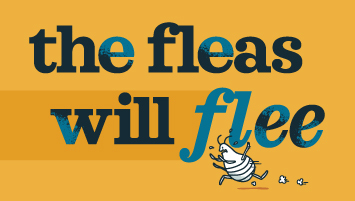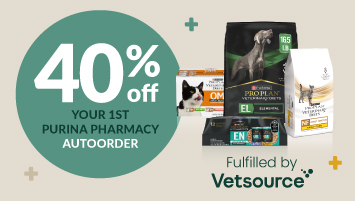Product details
PrednisoLONE is an intermediate-acting glucocorticoid (steroid) medication with several therapeutic uses, including the treatment of autoimmune or inflammatory conditions (e.g., asthma, allergies), hormone replacement, or as part of a chemotherapy protocol.
This product is a tablet formulation.
*Note: prednisoLONE should not be confused (and is not typically considered interchangeable) with predniSONE.
-
PrednisoLONE has an FDA-approved indication to treat inflammatory conditions in dogs requiring glucocorticoid therapy.
-
Can also be used in dogs, cats, and horses for a variety of conditions, including hypoadrenocorticism (Addison’s disease), asthma, and autoimmune disorders.
-
PrednisoLONE is typically recommended over predniSONE in cats and horses because they absorb this medication more effectively.
-
May be prescribed for other animal species; please consult your veterinarian.
-
While this drug does not have an FDA-approved indication for all animal uses, it is commonly accepted for veterinarians to prescribe this medication for use in animals.
*Please note: This is a generic medication. Product packaging and appearance, including size, color, and shape, may differ from the description or images provided and are subject to manufacturer availability.
Product sourced directly from the manufacturer or their approved distributor. Guaranteed genuine product backed by the manufacturer.
For
Dogs, Cats, and Horses
Active ingredient(s)
Prednisolone
Common brand names
PrednisTab
Drug class
Glucocorticoid
Product strength & size
Prednisolone tablets may be available in multiple strengths and/or sizes. Please ensure the selected product and package size are appropriate for your pet, as recommended by your veterinarian.
For current availability, please refer to the product selection above.
Usage
Prednisolone Tablets should be given orally as directed by your veterinarian.
Do not discontinue this medication abruptly, especially if your pet has been taking it for two or more weeks. Please consult your veterinarian before making any changes or discontinuing the prescribed dosing schedule.
Ensure your pet always has access to fresh, clean drinking water while taking this medication.
This medication is preferably given with food, as this may help prevent gastrointestinal side effects.
If your pet vomits or appears unwell after receiving a dose on an empty stomach, give future doses with food or a small treat. If vomiting continues, contact your veterinarian.
Missed doses
Administer the dose as soon as possible. If it is almost time for the next dose, skip the missed dose and continue with the regular schedule. Do not give two doses at once.
Storage
Store in a cool, dry place at a controlled room temperature (68 to 77°F, brief excursions permitted between 59 and 86°F). Keep in a tight, light-resistant container and out of the reach of children and pets. Store away from heat and direct sunlight. Do not store this medication in the bathroom, near the kitchen sink, or in damp places. The medicine may break down if exposed to heat or moisture.
Side effects
Many side effects of corticosteroids are linked to high doses or prolonged usage; however, side effects may still occur during short-term therapy. Your veterinarian may provide specific instructions to help avoid or lessen these effects.
The most common side effects of this medication are excessive thirst, urination, and/or appetite.
Other possible side effects include (but may not be limited to) dull/dry haircoat, weight gain, panting, GI effects (vomiting, diarrhea, GI ulceration), weakness, muscle wasting, and mild behavioral changes (e.g., depression, lethargy).
Contact your veterinarian immediately if your pet has complete appetite loss; high blood sugar; atypically low energy level; extreme behavioral changes (e.g., aggression), bloody vomit; or black, tarry stools.
Notify your veterinarian if your pet experiences any of the effects described above, or if you notice any other side effects that are persistent or troublesome.
If you notice anything unusual, please consult your veterinarian.
Precautions
Do NOT discontinue this medication abruptly, especially if your pet has been taking it on a regular basis. Please consult your veterinarian before making any changes to the prescribed dosing schedule.
Do NOT use this medication if your pet has a current systemic fungal or viral infection, active tuberculosis, demodectic mange, Cushing’s disease (hyperadrenocorticism), or active corneal/GI ulceration. This medication should NOT be given concurrently with additional steroid or NSAID medications.
Use with caution in animals with preexisting congestive heart failure, diabetes, hypertension, osteoporosis, bleeding disorders, or kidney disease.
Steroid medications can weaken your pet's immune system, making it easier for them to get an infection (or worsen an existing one). Vaccines should not typically be administered while on this medication.
Notify your veterinarian if your pet is pregnant or nursing; they may adjust the dosage or monitor your pet more frequently while taking this medication.
Do not administer to animals with a known history or suspected allergy/hypersensitivity to any corticosteroid drug, including this medication or any of its ingredients. Allergic reactions to medications may occur. Be sure to inform Vetsource and your veterinarian if your pet has any known drug sensitivities or allergies.
If your pet displays symptoms of an allergic reaction, discontinue therapy and call your veterinarian immediately or seek emergency veterinary attention. Symptoms may include (but are not limited to): swollen lips, tongue, face, or airways; difficulty breathing; agitation; profuse salivation; and widespread hives or itching.
Drug and food interactions
The following drugs* may have potential interactions with this medication: aspirin, antidiabetic agents (including insulins), azole antifungals (e.g., ketoconazole), beta blockers (e.g., atenolol, sotalol), blood pressure medications (e.g., enalapril, telmisartan), calcium channel blockers (e.g., amlodipine, diltiazem), concurrent corticosteroids, cyclosporine, digoxin, potassium-depleting diuretics (e.g., furosemide, hydrochlorothiazide), fluoroquinolone antibiotics (e.g., ciprofloxacin), NSAIDs, phenobarbital, and warfarin.
*NOTE: this may not be a comprehensive list. Contact your veterinarian if your pet experiences any unusual reactions when different medications are given together.
Please ensure your veterinarian is aware of all medications and supplements that your pet is currently receiving. Your veterinarian may prescribe multiple medications, even if a potential drug interaction may occur. In these instances, your veterinarian may adjust the dosages or monitor your pet more closely.
Adverse reactions
If you are concerned that your pet has experienced an adverse reaction to this medication, please contact Vetsource Pet Owner Care at 877-738-4443.
Overdose
If you have any reason to suspect an overdose, call your doctor/veterinarian or the appropriate poison control resource immediately.
For humans:
The national toll-free Poison Help line, 1-800-222-1222, will connect you to your local poison center in case of emergency. This service is available nationwide and in most U.S. territories.
For animals:
The ASPCA Animal Poison Control Center is available 24 hours a day, 365 days a year at 888-426-4435.
Pet Poison Helpline® also provides a 24/7 animal poison control service at 855-764-7661.
*Please note: this information is for third-party services and is provided for convenience in case of potential poison-related emergencies. There may be consultation fee for these services.
Disclaimer
The content provided on this page is NOT medical advice.
All content, including the images and product description above, is intended for general informational purposes only and should not be considered a substitute for professional veterinary consultation, diagnosis, or treatment.
Consult your veterinarian for complete information about this product and how it fits into your pet's individual treatment plan.
Last revised: 7/02/2025





















